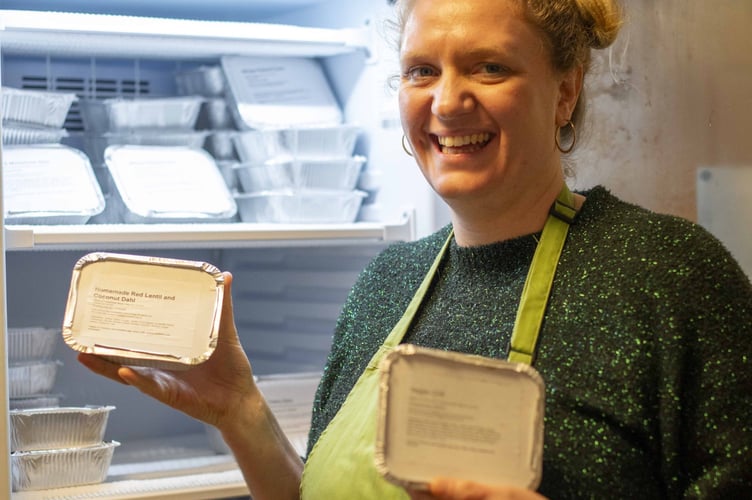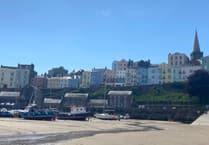A rural Pembrokeshire village has set up a thriving community freezer, offering affordable meals to local families.
Hermon village’s community freezer - regularly stocked and ready to serve everyone, is accessible to all local people, offering meals either for free or for a small donation.
With the rising cost of living, many people are forced to buy lower-quality food to feed their families.
This initiative combats that issue by utilising the abundant local produce, readily available.
The freezer is stocked by the Community Meals project, led by Heather Sanderson and Jemma Vickers from the CARE team (Cwm Arian Renewable Energy).
Local chef and winemaker, Jemma recently earned the UK's first and only ‘Sustainable Wine Award’.
When she is not at home on her vineyard, she is involved with community cooking.
For the freezer, Jemma prepares a variety of delicious dishes, including Asian and African curries, lasagnas, and chilis - just to name a few.
The Community Meals Project is forming a community group to support this freezer initiative.
Under Jemma’s guidance, the group will prepare delicious meals for the freezer while learning new recipes.

Additionally, anyone who joins these cooking sessions will be eligible to receive their Level One and/or Level Two Food Hygiene Certificates.
This is optional but highly beneficial for those keen to obtain a certificate for future job opportunities.
If you’re interested in participating, please reach out to the meals team at: [email protected]
Cris Tomos, chair of the local Community Council and one of the founders of Canolfan Hermon, said: “This grant was secured with the help of Daniel and Michael from the CARE team, highlighting the power of community collaboration and co-production of new ideas in rural communities"
Upcoming Community Cooking Sessions run on Thursdays from 10am to 12pm, at the following dates and venues: July 18, August 15 and 29, September 19 at Canolfan Hermon; August 1 and September 5 at Y Stiwdio.
Participants can take home meals for their evening dinner.
The project has received generous funding of £3,000 from PAVS via the Doing The Small Things Grant.




